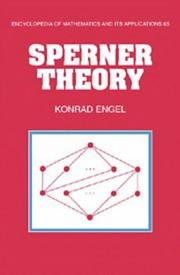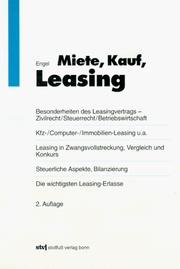| Listing 1 - 10 of 35 | << page >> |
Sort by
|
Book
ISBN: 3906759032 9783906759036 Year: 1997 Publisher: Bern: Lang,
Abstract | Keywords | Export | Availability | Bookmark
 Loading...
Loading...Choose an application
- Reference Manager
- EndNote
- RefWorks (Direct export to RefWorks)
La question du père et de Dieu telle qu'elle se pose après la guerre et les camps nazis est approchée, dans la présente étude, à partir d'un corpus littéraire privilégié: celui d'Élie Wiesel, auteur francophone, juif et prix Nobel de la paix. Dans un premier temps, cette monographie aborde la question du père, de Dieu et de la Shoah dans une perspective philosophique et psychanalytique. Davantage qu'une question du père, on découvre qu'il s'agit d'une question au père; ce dernier est le lieu du questionnement, où chacun, fils face au père, homme face à Dieu, projette l'angoisse inhérente à sa condition. Toutes les sciences humaines ne sont dès lors qu'une façon d'appréhender cette angoisse, et la littérature est le lieu où certains auteurs développent les questions multiples qui l'accompagnent. Dans la deuxième partie, ce travail se plonge dans l'oeuvre romanesque d'Élie Wiesel dont ce triple questionnement - Dieu, père et Shoah - est le fondement.
Catastrophe [Jewish ] (1939-1945) --- Choa --- Destruction des Juifs (1941-1945) --- Destruction of the Jews (1939-1945) --- Endlösung der Judenfrage --- Extermination [Jewish ] (1939-1945) --- Extermination des Juifs (1941-1945) --- Fatherhood (Theology) --- Guerre mondiale (1939-1945) -- Shoah --- Génocide des Juifs (1941-1945) --- Génocide juif (1941-1945) --- Holocaust [Jewish ] (1939-1945) --- Holocaust [Jewish ] (1939-1945) in literature --- Holocaust [Joodse ] (1939-1945) --- Holocaust [Joodse ] (1939-1945) in de literatuur --- Holocaust [Nazi ] --- Holocaust juif (1939-1945) dans la littérature --- Holocauste (1941-1945) --- Holocauste juif (1939-1945) --- Hurban (1939-1945) --- Hurbn (1939-1945) --- Jewish Catastrophe (1939-1945) --- Jewish Holocaust (1939-1945) --- Jews -- Nazi persecution --- Juifs -- Extermination (1941-1945) --- Juifs -- Génocide (1941-1945) --- Juifs -- Holocauste (1941-1945) --- Juifs -- Rafles (1941-1945) --- Juifs -- Shoah (1941-1945) --- Nazi Holocaust --- Nazi persecution of Jews --- Paternité divine (Theologie) --- Psychanalyse et religion --- Psychoanalyse en godsdienst --- Psychoanalysis and religion --- Question juive [Solution finale de la ] --- Rafles de juifs (1941-1945) --- Sho'ah (1939-1945) --- Shoah --- Solution finale de la question juive --- Vaderschap Gods (Theologie) --- Holocaust, Jewish (1939-1945), in literature --- Wiesel, Elie, --- Criticism and interpretation --- Wiesel, Elie --- Religion --- Wiesel, Elie, - 1928- - Criticism and interpretation --- Wiesel, Elie, - 1928 --- -Fatherhood (Theology) --- Holocaust (1939-1945) --- -Holocaust, Jewish (1939-1945), in literature --- Wiesel, Elie, - 1928-
Book
ISBN: 2707316105 9782707316103 Year: 1997 Publisher: Paris: Éd. de Minuit,
Abstract | Keywords | Export | Availability | Bookmark
 Loading...
Loading...Choose an application
- Reference Manager
- EndNote
- RefWorks (Direct export to RefWorks)
Philosophy --- Analysis (Philosophy) --- Philosophie --- Philosophie analytique --- History. --- History --- Histoire --- -Mental philosophy --- Humanities --- Analysis, Linguistic (Philosophy) --- Analysis, Logical --- Analysis, Philosophical --- Analytic philosophy --- Analytical philosophy --- Linguistic analysis (Philosophy) --- Logical analysis --- Philosophical analysis --- Philosophy, Analytical --- Language and languages --- Methodology --- Logical positivism --- Semantics (Philosophy) --- -History --- Philosophy - History. --- Analysis (Philosophy).
Book
ISBN: 9070980258 Year: 1997 Publisher: Lelystad CHR/KHR
Abstract | Keywords | Export | Availability | Bookmark
 Loading...
Loading...Choose an application
- Reference Manager
- EndNote
- RefWorks (Direct export to RefWorks)
Book
ISBN: 3727291516 9783727291517 Year: 1997 Publisher: Berne: Stämpfli,
Abstract | Keywords | Export | Availability | Bookmark
 Loading...
Loading...Choose an application
- Reference Manager
- EndNote
- RefWorks (Direct export to RefWorks)

ISBN: 0521452066 9780521452069 9780511574719 Year: 1997 Volume: 65 Publisher: Cambridge: Cambridge university press,
Abstract | Keywords | Export | Availability | Bookmark
 Loading...
Loading...Choose an application
- Reference Manager
- EndNote
- RefWorks (Direct export to RefWorks)
Sperner theory --- Partially ordered sets --- Théorème de Sperner --- Ensembles partiellement ordonnés

ISBN: 1139886509 0511959648 1107103037 110708864X 0511574711 1107094836 1107091578 9781107088641 0521452066 9780521452069 Year: 1997 Publisher: Cambridge ; New York : Cambridge University Press,
Abstract | Keywords | Export | Availability | Bookmark
 Loading...
Loading...Choose an application
- Reference Manager
- EndNote
- RefWorks (Direct export to RefWorks)
The starting point of this book is Sperner's theorem, which answers the question: What is the maximum possible size of a family of pairwise (with respect to inclusion) subsets of a finite set? This theorem stimulated the development of a fast growing theory dealing with external problems on finite sets and, more generally, on finite partially ordered sets. This book presents Sperner theory from a unified point of view, bringing combinatorial techniques together with methods from programming, linear algebra, Lie-algebra representations and eigenvalue methods, probability theory, and enumerative combinatorics. Researchers and graduate students in discrete mathematics, optimisation, algebra, probability theory, number theory, and geometry will find many powerful new methods arising from Sperner theory.
Partially ordered sets. --- Sperner theory. --- Sperner's theorem --- Theorem, Sperner's --- Combinatorial analysis --- Posets --- Sets, Partially ordered --- Ordered sets --- Sperner theory --- Partially ordered sets
Book
ISBN: 3931321843 Year: 1997 Publisher: Berlin : Jovis,
Abstract | Keywords | Export | Availability | Bookmark
 Loading...
Loading...Choose an application
- Reference Manager
- EndNote
- RefWorks (Direct export to RefWorks)
Architecture --- History --- Berlin (Germany) --- Buildings, structures, etc.
Book
Year: 1997 Publisher: Cambridge, Mass. National Bureau of Economic Research
Abstract | Keywords | Export | Availability | Bookmark
 Loading...
Loading...Choose an application
- Reference Manager
- EndNote
- RefWorks (Direct export to RefWorks)

ISBN: 3083135025 Year: 1997 Publisher: Bonn Stollfuss
Abstract | Keywords | Export | Availability | Bookmark
 Loading...
Loading...Choose an application
- Reference Manager
- EndNote
- RefWorks (Direct export to RefWorks)
Book
ISBN: 0575400838 Year: 1997 Publisher: London Indigo/Cassell
Abstract | Keywords | Export | Availability | Bookmark
 Loading...
Loading...Choose an application
- Reference Manager
- EndNote
- RefWorks (Direct export to RefWorks)
| Listing 1 - 10 of 35 | << page >> |
Sort by
|

 Search
Search Feedback
Feedback About UniCat
About UniCat  Help
Help News
News